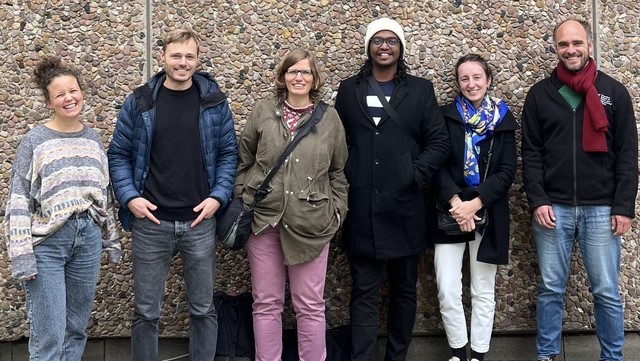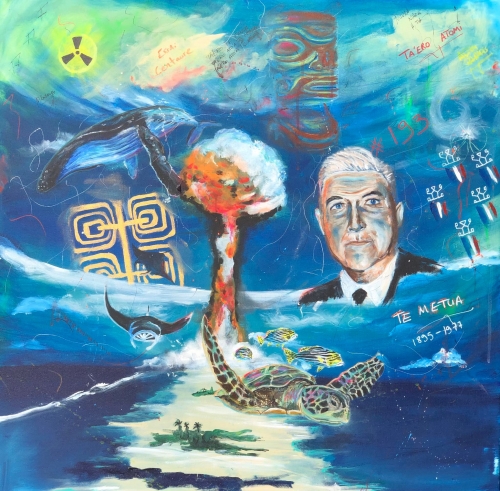Project: Nuclear Justice and Gender in the Sea of Islands

University of Hamburg – Institute of Geography
Research Project 2024 - 2027
Te Parau Tià i mua i te Parau o te âtomī e te Parau o te Taata, no te Moana e-tuiau-i-te mau Motu
Justice nucléaire et genre dans la mer d'Îles
Since 1945, over 2,000 nuclear explosions have been conducted by nuclear-armed states, often in regions under colonial occupation considered to be remote. These nuclear explosions have left long-lasting radioactive contamination of the land, groundwater, sea, air and people. The Sea of Islands (Epeli Hauʻofa), the Pacific Islands region, where people live on islands and are connected by their common environment, was particularly affected. M̧ajeļ/Marshall Islands (1947 - 1958), in Kiribati (1957 - 1962), and Māòhi Nui/French-occupied Polynesia (1966 - 1996), together were bombed 300 times during atmospheric and underground nuclear explosions conducted respectively by the United States of America, the United Kingdom and France. These explosions have had dramatic environmental and humanitarian impacts, including severe and intergenerational health issues especially for women and children. Affected communities are still dealing with this nuclear legacy and their claims for justice have still not been adequately addressed. Such calls for justice are echoed today in relation to climate change and its socio-ecological impacts on communities that have contributed the least to it. The existential threat that climate change is posing to their homes, health, ways of life, livelihoods and culture is further reactivating risks of nuclear contamination

